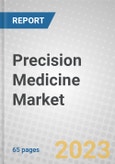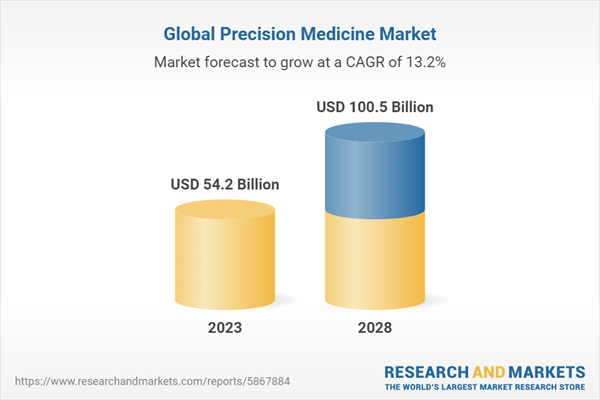This study offers a global view of the solutions provided by precision medicine in the market. This report analyzes and assesses technologies such as big data analytics, bioinformatics, gene sequencing, drug discovery, companion diagnostics, and others. It also provides information about the areas in which precision medicine is used, such as oncology, central nervous system disorders, immunology, respiratory conditions, and others.
The report analyzes and makes projections for each market and its segmentation and assesses the regulatory environment, pipeline products, and future aspects. The report also examines the impact of COVID, discusses emerging trends in the market, and profiles leading companies in the precision medicine market such as Pfizer, Roche, AstraZeneca, Novartis, and Thermo Fisher Scientific. The report covers the major markets of North America and Europe and emerging markets such as India, China, Japan, South America, and others.
Report Includes
- 26 tables
- A comprehensive overview and an up-to-date analysis of the global market for precision medicine
- Analyses of the global market trends, with market revenue data (sales figures) for 2020-2022, forecasts for 2023, and projections of compound annual growth rates (CAGRs) through 2028
- Discussion of industry growth driving factors and major technology issues and challenges affecting the market for precision medicine as a basis for projecting demand in the next few years (2023-2028)
- Estimation of the actual market size and revenue forecast for global precision medicine market in USD million values, and corresponding market share analysis by technology type, application, end user, and region
- Insights into the recent industry structure for precision medicine technologies, competitive aspects of each product segments, increasing investment on R&D activities, market growth strategies, and company revenue share analysis
- Review of the recent patent grants and patent applications on precision medicine technologies
- Updated information on key mergers and acquisition deals, agreements, partnerships, collaborations and product launches within the global precision medicine industry
- Identification of the major stakeholders and analysis of the company competitive landscape based on their recent developments, financial performance, and segmental revenues
- Detailed company profiles of the leading market players, including AstraZeneca, Bristol-Myers Squibb Co., Novartis AG, Pfizer Inc., and Johnson & Johnson
Table of Contents
Companies Mentioned
- 2Bprecise
- Abbvie Inc.
- Amgen Inc.
- Astrazeneca
- Bristol-Myers Squibb Co.
- Catalent Inc.
- Clinisys
- F. Hoffmann-La Roche Ltd.
- Fabric Genomics
- Human Longevity Inc.
- Iqvia Holdings Inc.
- Johnson & Johnson
- Lifeomic Holdings LLC
- Lonza
- Merck & Co. Inc.
- Novartis AG
- Parexel International Corp.
- Pfizer Inc.
- Sophia Genetics
- Syapse Inc.
- Thermo Fisher Scientific Inc.
Table Information
| Report Attribute | Details |
|---|---|
| No. of Pages | 65 |
| Published | August 2023 |
| Forecast Period | 2023 - 2028 |
| Estimated Market Value ( USD | $ 54.2 Billion |
| Forecasted Market Value ( USD | $ 100.5 Billion |
| Compound Annual Growth Rate | 13.2% |
| Regions Covered | Global |
| No. of Companies Mentioned | 21 |









